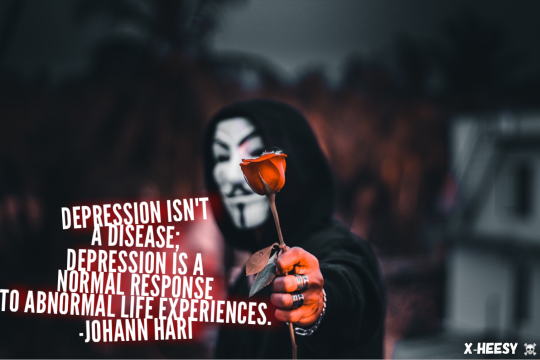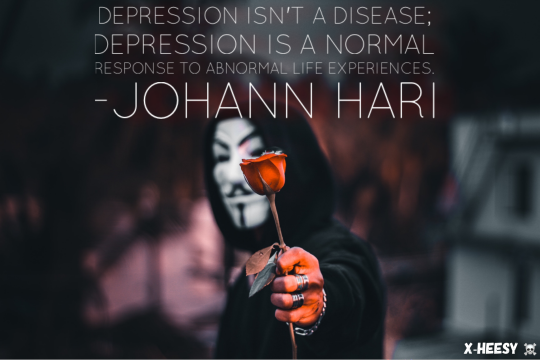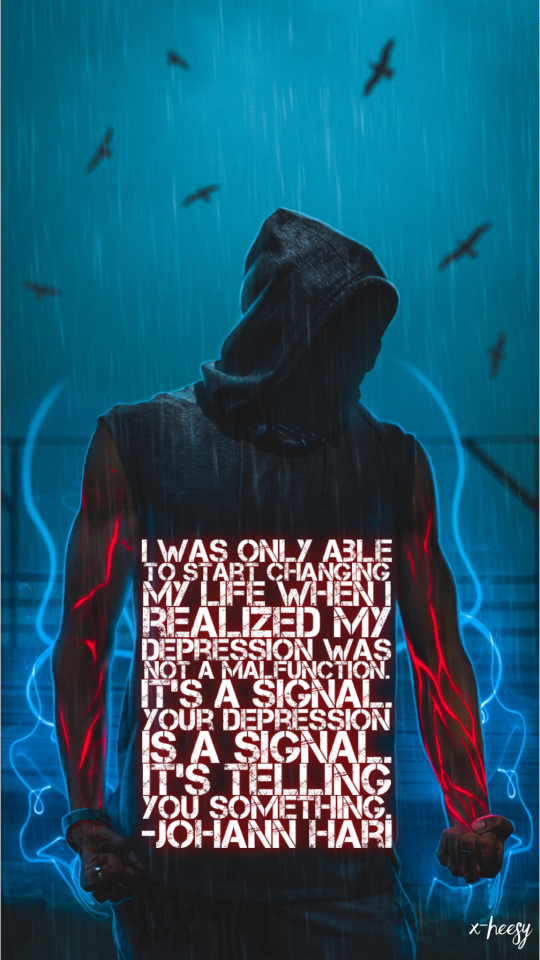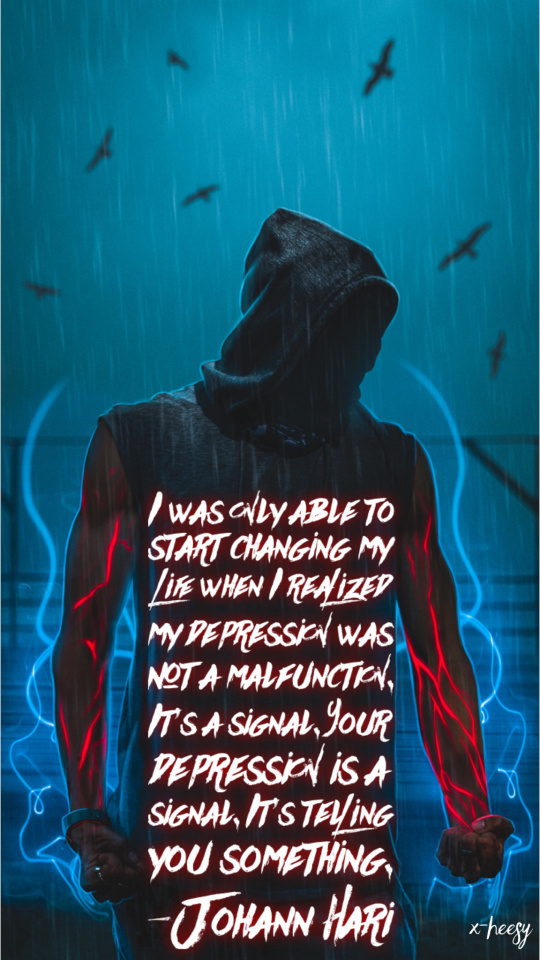#johann hari
Quote
This made me wonder what the message is that we absorb from social media, and how it compares to the message that we absorb from printed books. I thought first of Twitter. When you log in to that site—it doesn’t matter whether you are Donald Trump or Bernie Sanders or Bubba the Love Sponge—you are absorbing a message through that medium and sending it out to your followers. What is that message? First: you shouldn’t focus on any one thing for long.
The world can and should be understood in short, simple statements of 280 characters. Second: the world should be interpreted and confidently understood very quickly. Third: what matters most is whether people immediately agree with and applaud your short, simple, speedy statements. A successful statement is one that lots of people immediately applaud; an unsuccessful statement is one that people immediately ignore or condemn. When you tweet, before you say anything else, you are saying that at some level you agree with these three premises. You are putting on those goggles and seeing the world through them.
I realized one of the key reasons why social media makes me feel so out of joint with the world, and with myself. I think all of these ideas—the messages implicit in these mediums—are wrong. In fact, the world is complex. To reflect that honestly, you usually need to focus on one thing for a significant amount of time, and you need space to speak at length. Very few things worth saying can be explained in 280 characters. If your response to an idea is immediate, unless you have built up years of expertise on the broader topic, it’s most likely going to be shallow and uninteresting.
Johann Hari, Are Screens Robbing Us of Our Capacity for Deep Reading?
310 notes
·
View notes
Text
“Protracted loneliness causes you to shut down socially, and to be more suspicious of any social contact, he found. You become hypervigilant. You start to be more likely to take offense where none was intended, and to be afraid of strangers. You start to be afraid of the very thing you need most. John calls this a “snowball” effect, as disconnection spirals into more disconnection. Lonely people are scanning for threats because they unconsciously know that nobody is looking out for them, so no one will help them if they are hurt. This snowball effect, he learned, can be reversed—but to help a depressed or severely anxious person out of it, they need more love, and more reassurance, than they would have needed in the first place. The tragedy, John realized, is that many depressed and anxious people receive less love, as they become harder to be around. Indeed, they receive judgment, and criticism, and this accelerates their retreat from the world. They snowball into an ever colder place.”
77 notes
·
View notes
Text
« What, I wondered, is the message buried in the medium of the printed book? Before the words convey their specific meaning, the medium of the book tells us several things. Firstly, life is complex, and if you want to understand it, you have to set aside a fair bit of time to think deeply about it. You need to slow down. Secondly, there is a value in leaving behind your other concerns and narrowing down your attention to one thing, sentence after sentence, page after page. Thirdly, it is worth thinking deeply about how other people live and how their minds work. They have complex inner lives just like you. »
— Johann Hari, Stolen Focus
518 notes
·
View notes
Text

Cy Twombly
Proteus
1984
Synthetic polymer, coloured pencil and graphite on paper.
* * * *
You need to have a community. You need to have meaningful values, not the junk values you’ve been pumped full of all your life, telling you happiness comes through money and buying objects. You need to have meaningful work. You need the natural world. You need to feel you are respected. You need a secure future. You need connections to all these things. You need to release any shame you might feel for having been mistreated.
~Johann Hari (Book: Lost Connections) :::
[Philo Thoughts]
9 notes
·
View notes
Text

Depression isn't a disease; depression is a normal response to abnormal life experiences. -Johann Hari
Pluie fine - Polo & Pan Remix by Corine, Polo & Pan
@frenchpsychiatrymuderedmycnut

#x-heesy#my art#artists on tumblr#johann hari#11/2023#artful quotes#text art#typography#neo pop art#pop art#iphone art#newcontemporary#new contemporary#mental health#depression#you are not alone#quote inspiration#quote#quotes
11 notes
·
View notes
Text
Democracy requires the ability of a population to pay attention long enough to identify real problems, distinguish them from fantasies, come up with solutions, and hold their leaders accountable if they fail to deliver them. If we lose that, we lose our ability to have a fully functioning society.
People who can’t focus will be more drawn to simplistic authoritarian solutions—and less likely to see clearly when they fail. A world full of attention-deprived citizens alternating between Twitter and Snapchat will be a world of cascading crises where we can’t get a handle on any of them.
If we understand what’s happening, we can begin to change it. The writer James Baldwin said: "Not everything that is faced can be changed, but nothing can be changed until it is faced."
Johann Hari, in the book Stolen Focus
152 notes
·
View notes
Text
"Anlamlı değerlere ihtiyacın var senin. Anlamlı bir işe ihtiyacın var. Doğal dünyaya ihtiyacın var. Saygı gördüğünü hissetmeye ihtiyacın var. Güvenli bir geleceğe ihtiyacın var. Tüm bunlarla bağlantı içinde olmaya ihtiyacın var. Gördüğün yanlış muamele için hissettiğin utançtan kurtulmaya ihtiyacın var."
Johann Hari - Kaybolan Bağlar
3 notes
·
View notes
Text
"
NAOMI KLEIN: Well, it’s interesting. I mean, I think we are—I think it’s this self-reinforcing cycle, right? Where we’re getting from—we’re projecting onto our consumer products our identity, our community, and we are constructing ourselves through consumption, and so that if you tell people they have to consume less, it’s not seen as you want to take away my stuff, it’s you want to take away myself. Like it is a very profound—
JOHANN HARI: Oh, that’s fascinating.
NAOMI KLEIN: —panic that it induces, that has to do with this surrogate role that like we’re shopping for so much more than stuff in our culture, right? So, but yeah, I mean, what’s interesting, too, I mean, all the debates about economic growth. Like if we let go of growth as our primary measure of success, then we would have to talk about what we actually value, like what is it that we want.
And that’s what we can’t really do, because then we have to—you know, then we’re having a conversation about values and well-being and defining that. And so, growth allows us to avoid that conversation that we are not able to have, for a whole bunch of reasons.
"
2 notes
·
View notes
Quote
The opposite of addiction is not sobriety. The opposite of addiction is human connection.
Johann Hari
42 notes
·
View notes
Quote
It has other knock-on effects. Anne has conducted studies that split people into two groups, where one is given information in a printed book, and the other is given the same information on a screen. Everyone is then asked questions about what they just read. When you do this, you find that people understand and remember less of what they absorb on screens. There’s broad scientific evidence for this now, emerging from 54 studies, and she explained that it’s referred to as “screen inferiority.” This gap in understanding between books and screens is big enough that in elementary-school children, it’s the equivalent of two-thirds of a year’s growth in reading comprehension.
As she spoke, I realized that the collapse in reading books is in some ways a symptom of our atrophying attention, and in some ways a cause of it. It’s a spiral—as we began to move from books to screens, we started to lose some of the capacity for the deeper reading that comes from books, and that, in turn, made us less likely to read books. It’s like when you gain weight, and it gets harder and harder to exercise. As a result, Anne told me, she is worried we are now losing “our ability to read long texts anymore,” and we are also losing our “cognitive patience . . . [and] the stamina and the ability to deal with cognitively challenging texts.”
Johann Hari, Are Screens Robbing Us of Our Capacity for Deep Reading?
23 notes
·
View notes
Quote
I realized then that to recover from our loss of attention, it is not enough to strip out our distractions. That will just create a void. We need to strip out our distractions and to replace them with sources of flow.
Johann Hari
29 notes
·
View notes
Text

Loneliness isn’t the physical absence of other people, it’s the sense that you’re not sharing anything that matters with anyone else. If you have lots of people around you – perhaps even a husband or wife, or a family, or a busy workplace – but you don’t share anything that matters with them, then you’ll still be lonely. - Johann Hari
Art: Nigel Van Wieck
18 notes
·
View notes
Photo

(Art: Painting by Aldo Balding)
* * * *
You need to have a community. You need to have meaningful values, not the junk values you’ve been pumped full of all your life, telling you happiness comes through money and buying objects. You need to have meaningful work. You need the natural world. You need to feel you are respected. You need a secure future. You need connections to all these things. You need to release any shame you might feel for having been mistreated.
~Johann Hari
(Book: Lost Connections) ::: [Philo Thoughts]
20 notes
·
View notes
Text



山乇ㄥㄥ 丂卂|ᗪ
I was only able to start changing my life when I realized my depression was not a malfunction. It's a signal. Your depression is a signal. It's telling you something. -Johann Hari
Hey Trouble by Louisahhh 🎧

#you are not alone#x-heesy#my art#artists on tumblr#8/2023#johann hari#Depression#mental health#wisdoom#wisdom#soul cancer#knowledge#see with Your third eye#qotd#quoteoftheday#positive quotes#quote inspiration#quote of the day#artful quotes#iphone art#text art#typography#Pop art#neo pop art#music and art#contemporaryart#l o v e
3 notes
·
View notes
Text
In 1986, if you added up all the information being blasted at the average human being—TV, radio, reading—it amounted to 40 newspapers’ worth of information every day. By 2007, they found it had risen to the equivalent of 174 newspapers per day. The increase in the volume of information is what creates the sensation of the world speeding up.
How is this change affecting us? Sune Lehmann smiled when I asked. "There’s this thing about speed that feels great…. Part of why we feel absorbed in this is that it’s awesome, right? You get to feel that you are connected to the whole world, and you feel that anything that happens on the topic, you can find out about it and learn about it. It becomes exhausting. More importantly, what we are sacrificing is depth in all sorts of dimensions…. Depth takes time. And depth takes reflection. If you have to keep up with everything and send emails all the time, there’s no time to reach depth. Depth connected to your work in relationships also takes time. It takes energy. It takes long time spans. And it takes commitment. It takes attention, right? All of these things that require depth are suffering. It’s pulling us more and more up onto the surface."
Johann Hari, in the book Stolen Focus
52 notes
·
View notes
Quote
Imagine you bought a plant and you wanted to help it grow. What would you do? You would make sure certain things were present: sunlight, and water, and soil with the right nutrients. And you would protect it from the things that could damage or kill it: you would plant it far form the trampling feet of other people, and from pests and diseases. Your ability to develop deep focus is, I have come to believe, like a plant. To grow and flourish to its full potential, your focus needs certain things to be present: play for children and flow states for adults, to read books, to discover meaningful activities that you want to focus on, to have space to let your mind wander so you can make sense of your life, to exercise, to sleep properly, to eat nutritious food that makes it possible for you to develop a healthy brain, and to have a sense of safety. And there are certain things you need to protect your attention from, because they will sicken or stunt it: too much speed, too much switching, too many stimuli, intrusive technology designed to hack and hook you, stress, exhaustion, processed food pumped with dyes that amp you up, polluted air.
excerpt from Stolen Focus: Why You Can’t Pay Attention and How to Think Deeply Again by Johann Hari (pg 273)
#holy shit this book might be the single greatest and most important book I have read in the last several years#it's funny that I am posting about it on social media lmao#johann hari#stolen focus#but also GO OFF KING LET'S BRING DOWN SURVEILLANCE CAPITALISM AND CLIMATE CHANGE
12 notes
·
View notes